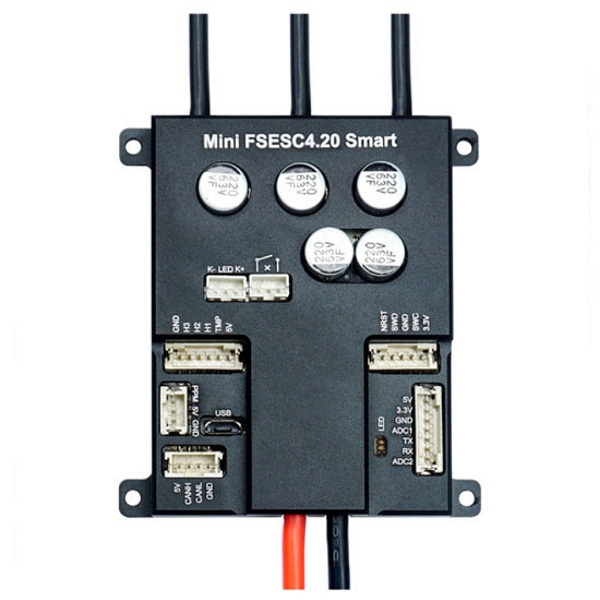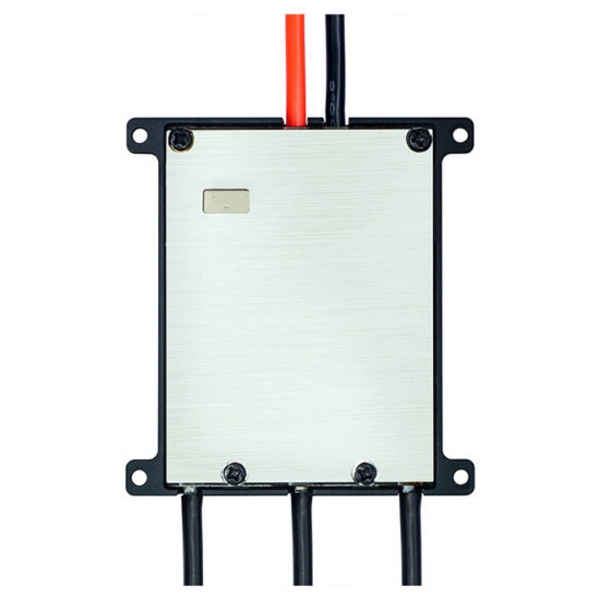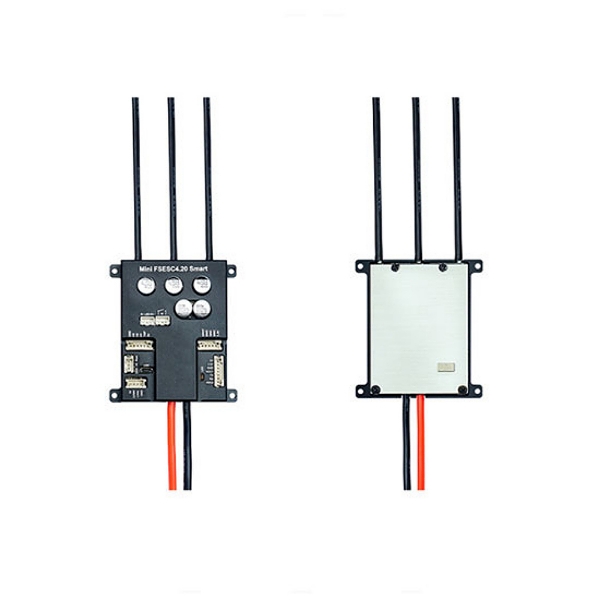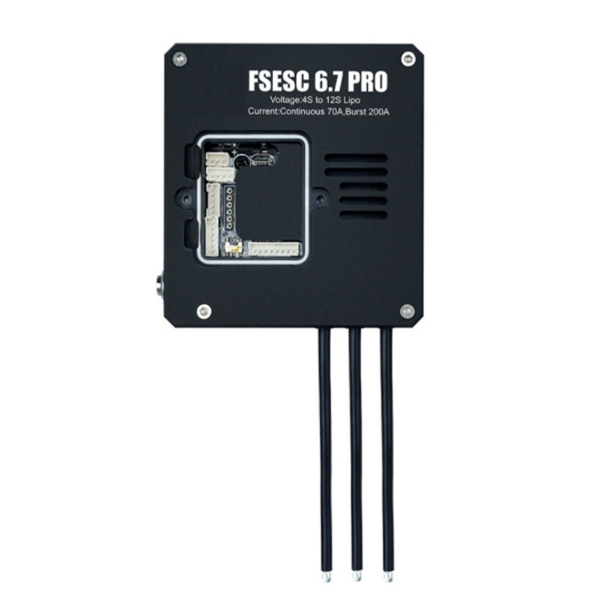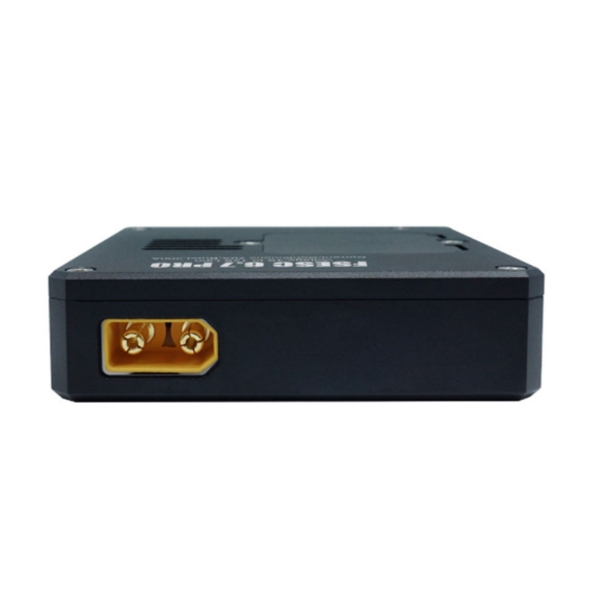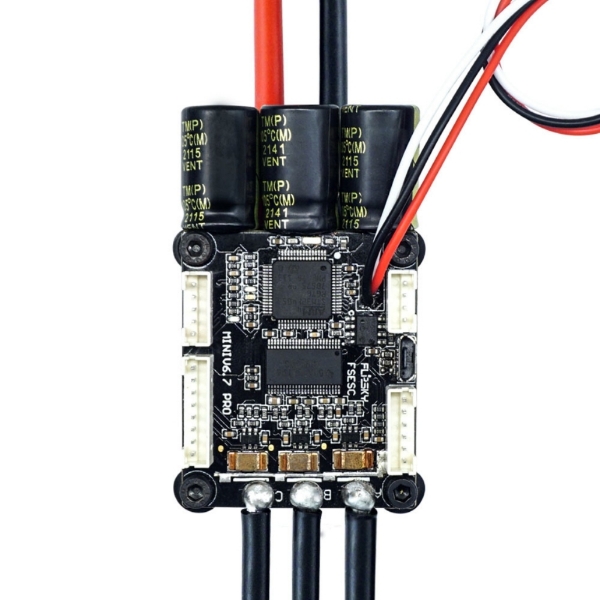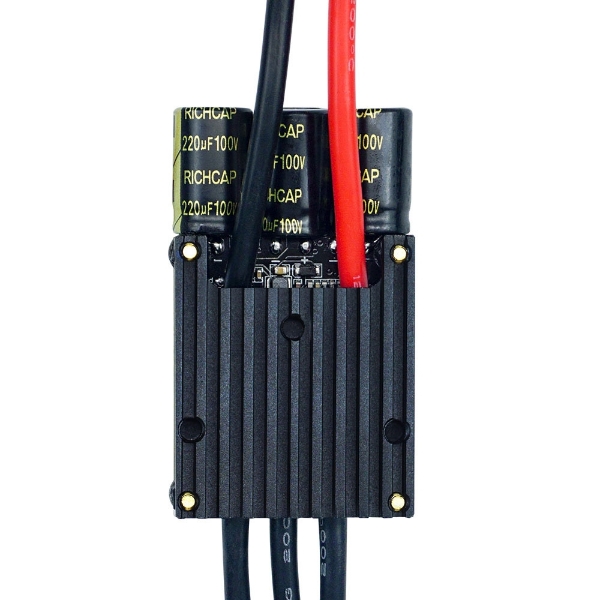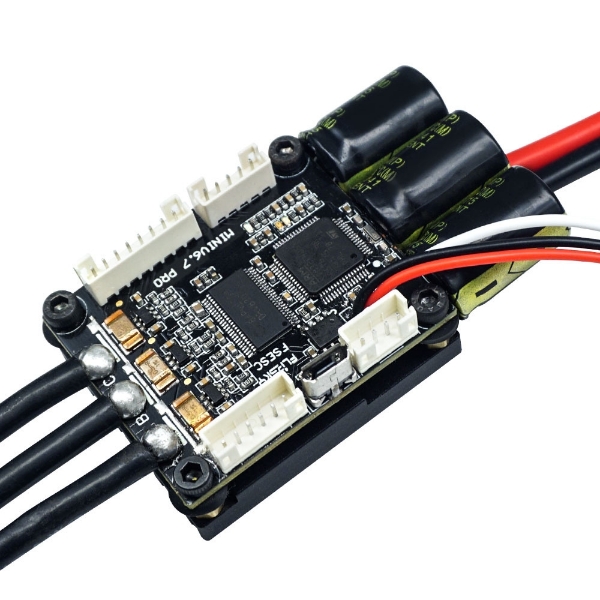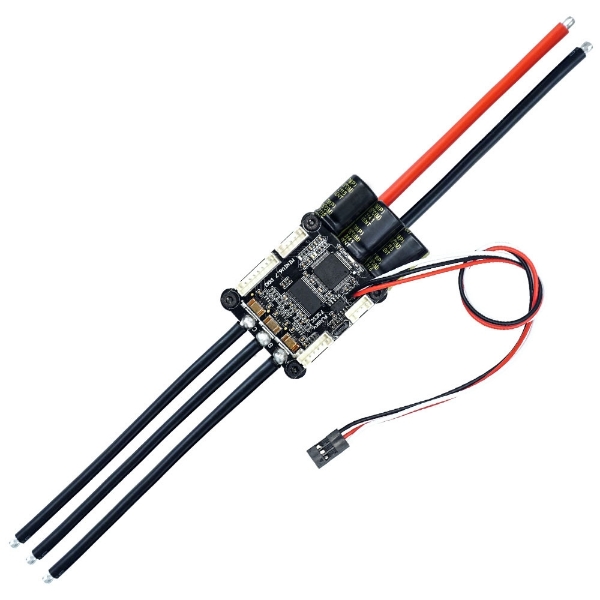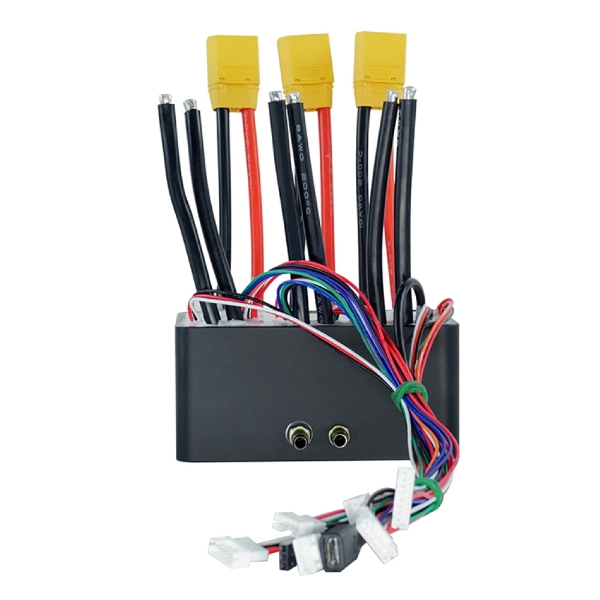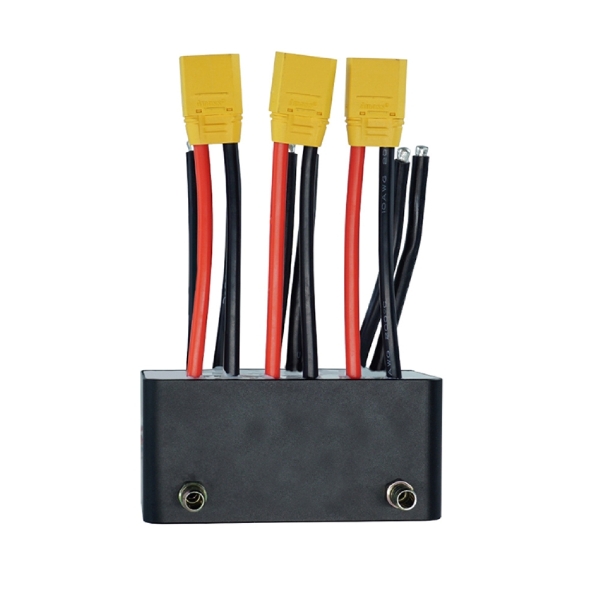Close
-
You have no items in your shopping cart.
- Register
- Log in
- Wishlist
- Shopping cart
Close
Menu
Close
- Home /
- Shop /
- BLDC Motor Controllers /
- 100A 4-12S Electronic Speed Controller for BLDC Motor
Write your own review
Related products
50A 3-12S Electronic Speed Controller for BLDC Motor
BLDC-ESC-503
Buy a single-drive ESC controller for bldc motors, supporting PWM input, 50A continuous and 100A peak current, 8V–60V (3–12S) voltage range. Housed in aluminum alloy for efficient heat dissipation. Perfect for robots, 4WD RC cars, robot arms, and DIY off-road vehicles.
$445.86
60A 3-12S Electronic Speed Controller for BLDC Motor
BLDC-ESC-603
High-performance brushless ESC controller with a compact design, delivering a stable 60A continuous current and up to 200A peak. Features a sealed, waterproof, and dustproof housing for durability in harsh environments, along with excellent heat dissipation. Supports multiple control modes and is ideal for single-drive brushless motor systems.
$664.82
70A 4-12S Electronic Speed Controller for BLDC Motor
BLDC-ESC-704
70A ESC controller for brushless motors with a safe voltage range of 14V–60V (4–12S). Designed to detect and correct momentary loss of control, enhancing vehicle stability. Suitable for a wide range of remote control and automotive applications, it delivers consistent performance and supports smooth motor operation under varying conditions. Ideal for hobbyists and custom vehicle projects.
$319.12
200A 3-16S Electronic Speed Controller for BLDC Motor
BLDC-ESC-200A
High-performance 200A Electronic Speed Controller for BLDC Motor. Operating at 14–75V (4–20S) with a continuous current of 200A, this compact ESC features IP67 waterproof protection and supports USB, CAN, and UART 3 communication interfaces. Its small footprint makes it ideal for applications such as combat robots, electric surfboards, and robotic arms.
$749.68
Precision BLDC Motors for Robotics, EVs and Automation
INFORMATION
RESOURCE
CUSTOMER SERVICE
Copyright © 2026 BLDC.com. All rights reserved.

